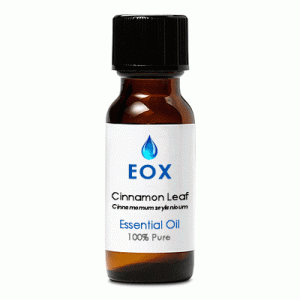|
Characteristics:
A yellow to brownish liquid with a warm-spicy, somewhat pungent odor.
Principal Constituents: These are naturally occuring in the essential oil.
- eugenol
- eugenol acetate
- cinnamaldehyde
- benzyl benzoate
- linalol
- safrol
General Actions:   Open Symbols Key
Open Symbols Key
Anthelmintic, anitdiarrheal, antidote to poison, antispasmodic, antiputrescent,
aphrodisiac, carminative, digestive, emmenagogue, hemostatic, orexygenic, parasiticide, refrigerant,
spasmolytic, stimulant (circulatory, cardiac, respiratory), stomachic, vermifuge.
Safety:
 
The leaf oil is relatively non-toxic; possible irritant because of the cinnamaldehyde. Eugenol is irritant
to the mucous membranes. Use in moderation.
Primary Therapy Agent:
Scabies, chills.
Secondary Therapy Agent:
Insect bites, lice, mouth and gum infections, warts, corns, constipation, sluggish digestion, cramp,
gastric spasm, indigestion, flatulence, amenorrhea, frigidity, labor pain, childbirth aid, leucorrhea,
colds/flu, nervous exhaustion, fatigue.
Important Note: The information on Florapathics.com is
only provided for educational purposes, and further research should be done on each essential oil to be assured
of its proper usage for each individual. Aromatherapy is not meant to be a replacement for care under a qualified
health professional, but should be considered a complimentary modality.
|









